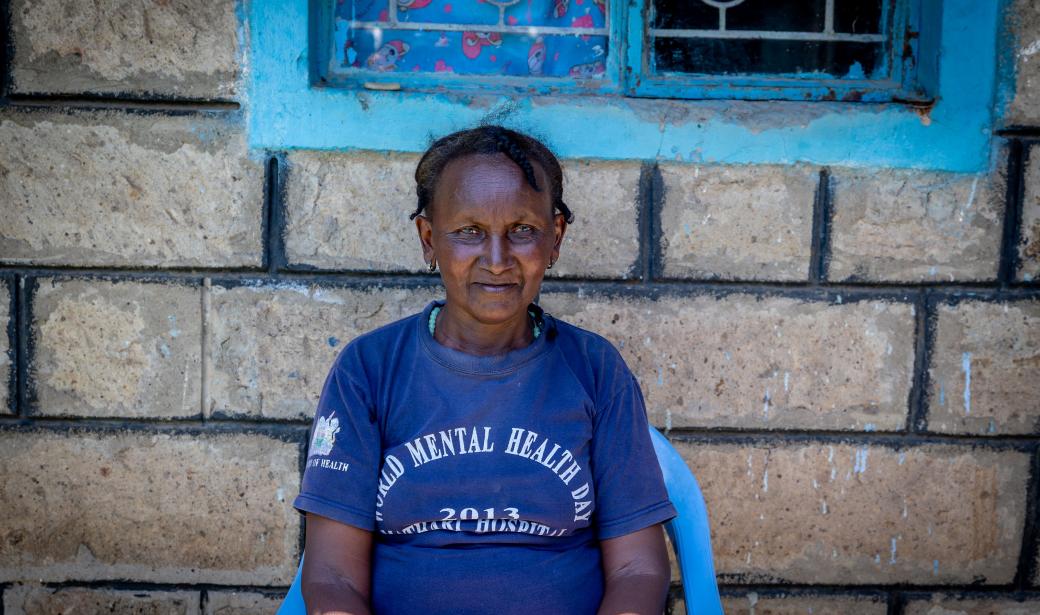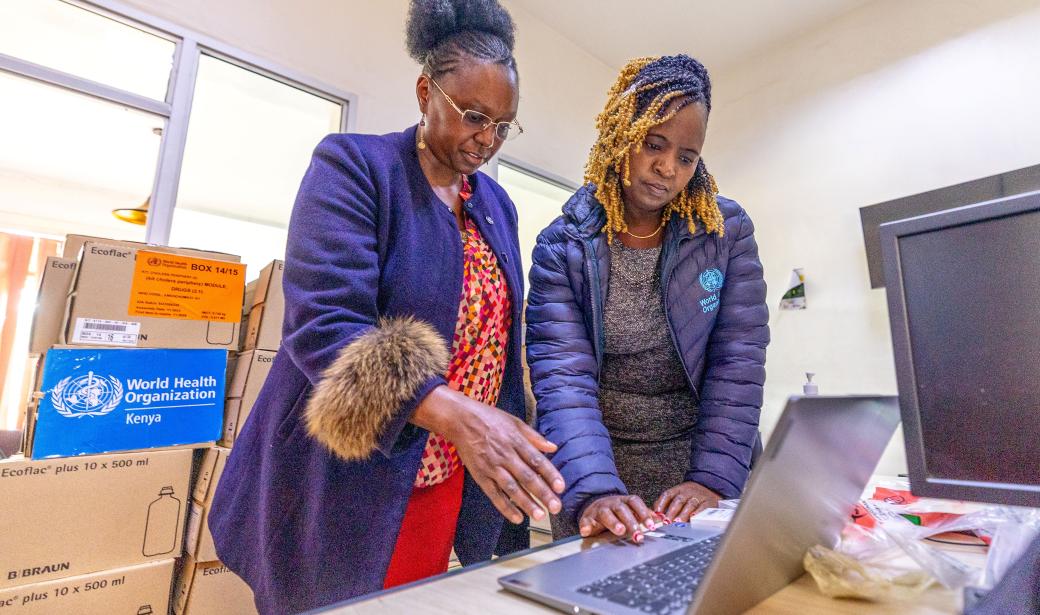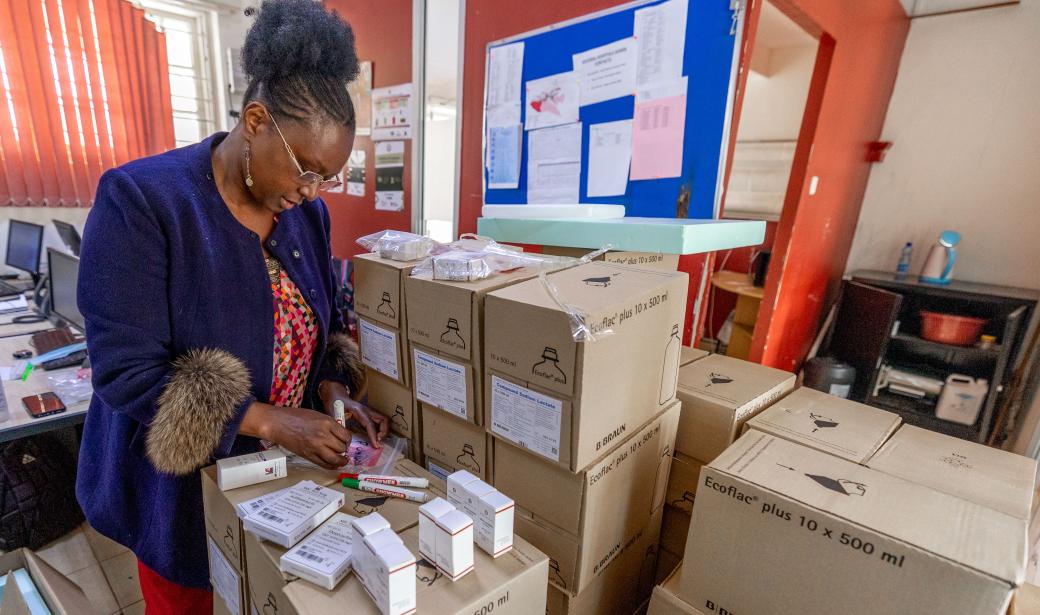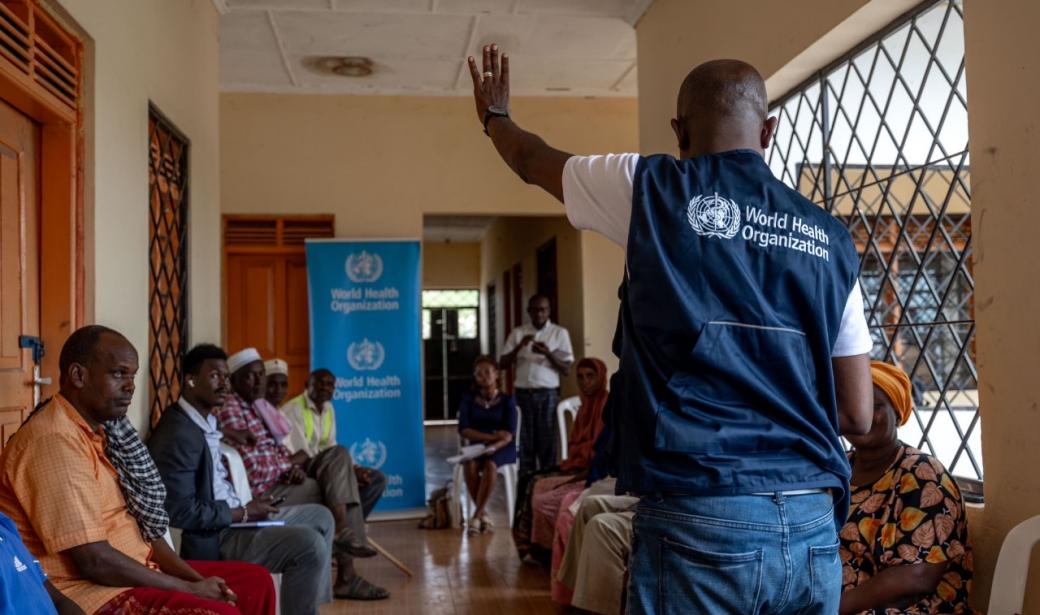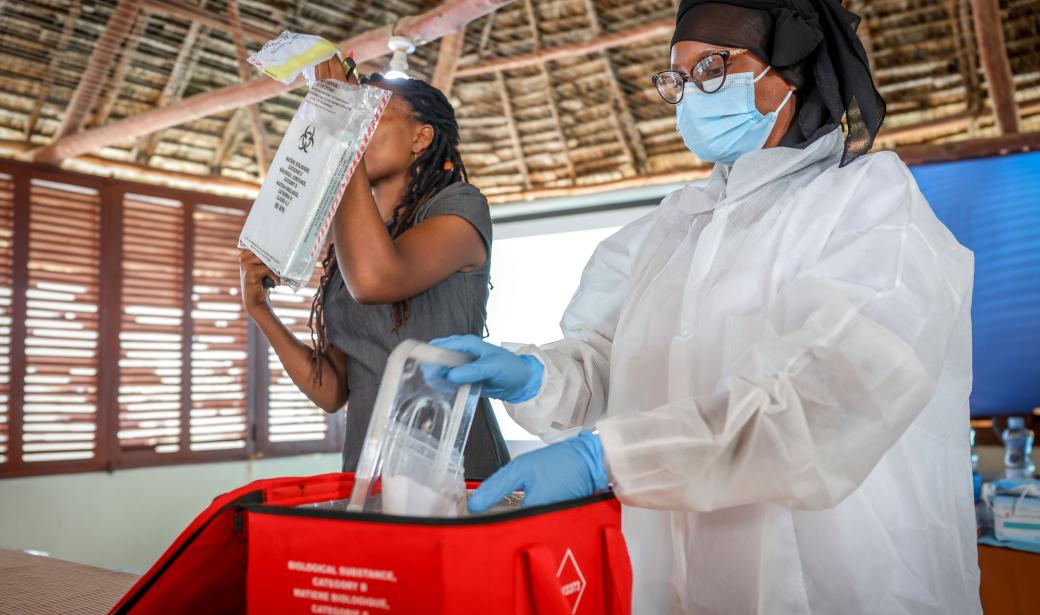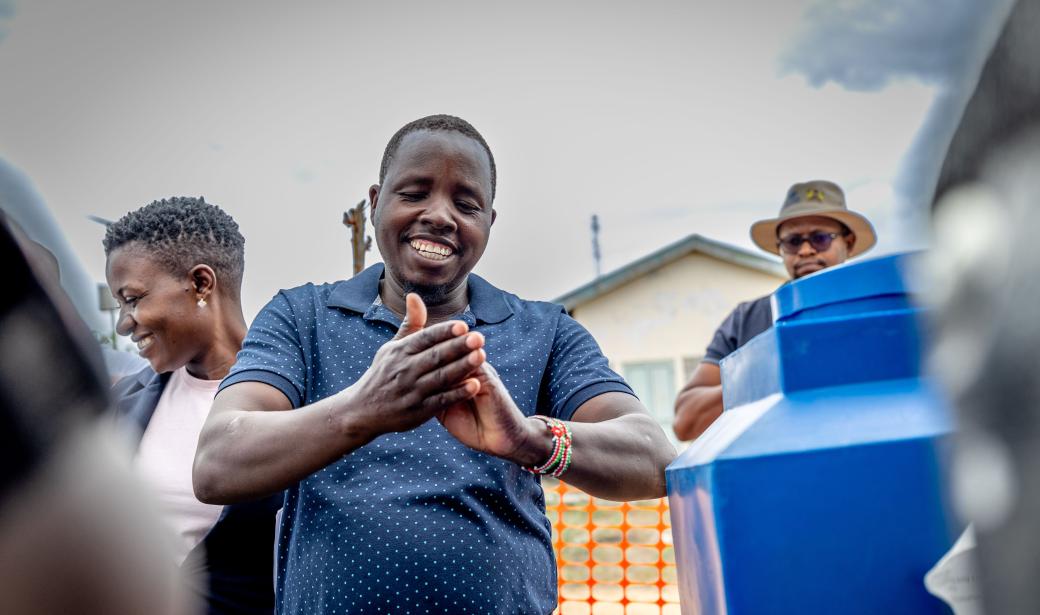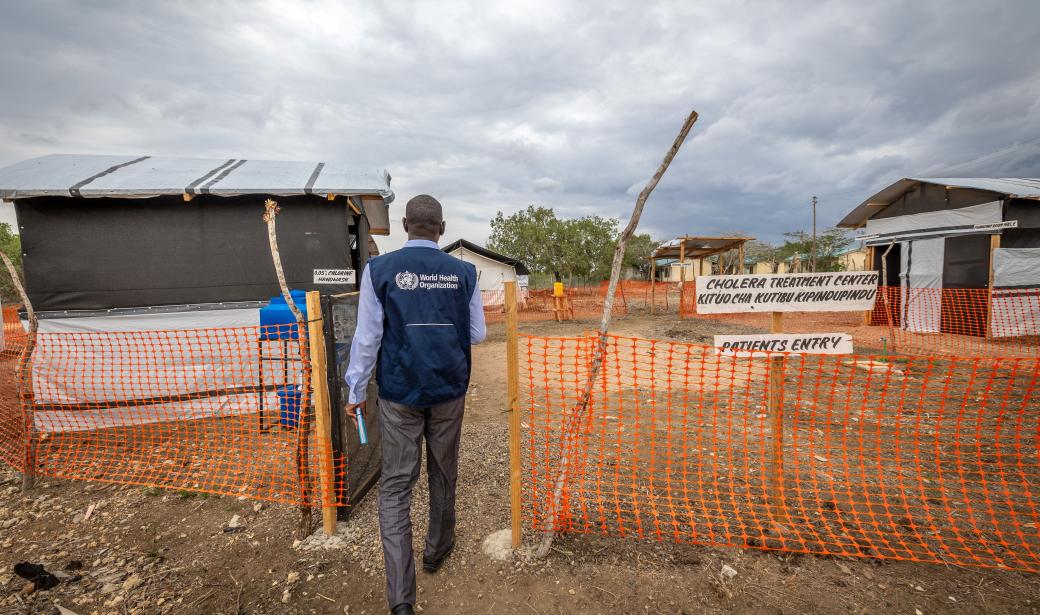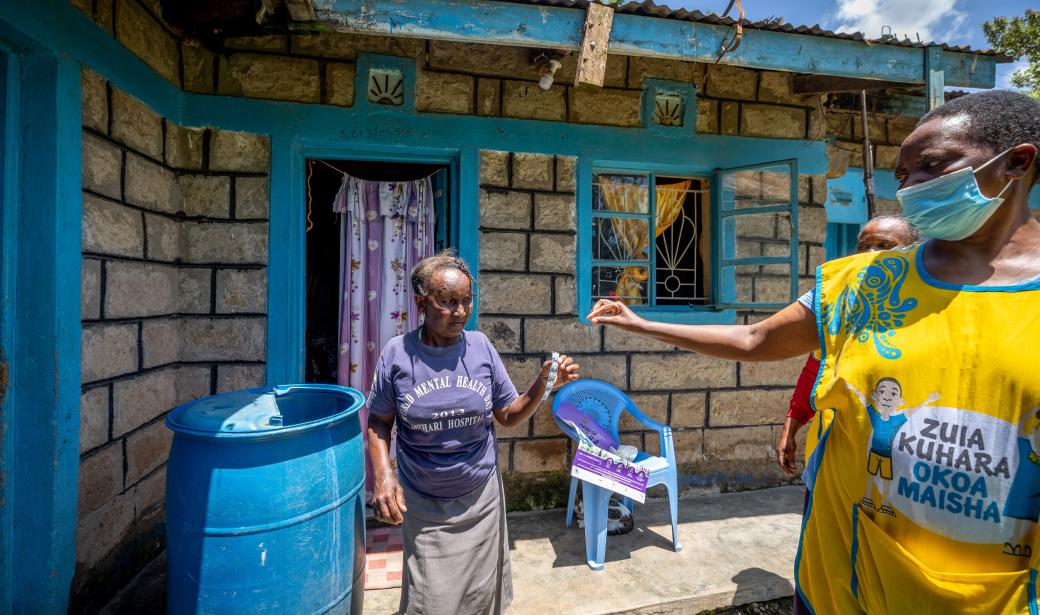Nairobi—Kenya is strengthening its national cholera outbreak preparedness and response during the current long rainy season, expected to last until the end of May. Four counties ‒ Nairobi, Kisumu,Migori and Kwale ‒ are experiencing a cholera outbreak, which was declared in late February 2025. So far, 256 suspected cases and 13 deaths have been reported, with a case fatality rate of 5.2%, exceeding the 1% threshold which indicates early and adequate treatment of cholera patients.
In response, health authorities, with support from World Health Organization (WHO), have deployed rapid response teams to the three counties to support local health officials with active case finding, contact tracing, case investigation and management, water sampling and laboratory diagnosis.
"I couldn’t walk. I couldn’t even make tea for my family like I always do,” she says. “I constantly felt like vomiting and rushing to the bathroom."
Thankfully, Dunta’s family acted quickly, rushing her to a health facility.
"After I was admitted, the doctors and nurses placed me on an intravenous drip and a cholera bed, which made it easier since I didn’t have to move to use the bathroom," says Dunta. With the support of health workers, Dunta made a full recovery.
"Rapid diagnostic tests have been delivered to all sub-counties in Nairobi, while laboratory commodities will be sent to Level 5 hospitals [those that provide specialized care]to strengthen diagnosis and improve patient care," says Nancy Nyoike, Medical Laboratory Officer at the centre.
At the community level, efforts are also underway to break the chain of transmission. “Community action is essential to control the outbreak," says Jane Mwetheri, Health Promotion Officer for Kasarani and Embakasi North sub-county. “We are working closely with communities raising awareness, distributing water purification tablets and ensuring food vendors meet health standards as outlined in the Public Health Act.”
Participants were trained as “trainers of trainers,” equipping them to effectively transfer the knowledge and skills they acquired to colleagues within their respective health facilities.
Training also included hands on exercises in cholera management including establishing and operating cholera treatment units. These units are essential in combating cholera outbreaks and have a specific flow that allows for infection prevention and control measures, including rehydration areas and recovery beds. In emergency situations, these units are set up in tents for quick deployment.
"This training has provided us with important updates on cholera case management, helping us fight any outbreaks as they occur," says Samuel Kiti, a medical laboratory technologist in Garsen, a town in Tana River county.
“This continued initiative underscores our shared commitment to safeguarding public health, improving coordination and preparedness, equipping health workers and protecting vulnerable communities,” says Dr Abdourahmane Diallo, WHO Representative in Kenya.
"I feel so much better now. I am grateful to everyone who helped save my life," says Ndunta.
Communication officer
WHO Kenya
Tel: +254 740 466 426
Email: printg [at] who.int (printg[at]who[dot]int)
Communications and marketing officer
Tel: + 242 06 520 65 65 (WhatsApp)
Email: boakyeagyemangc [at] who.int (boakyeagyemangc[at]who[dot]int)



